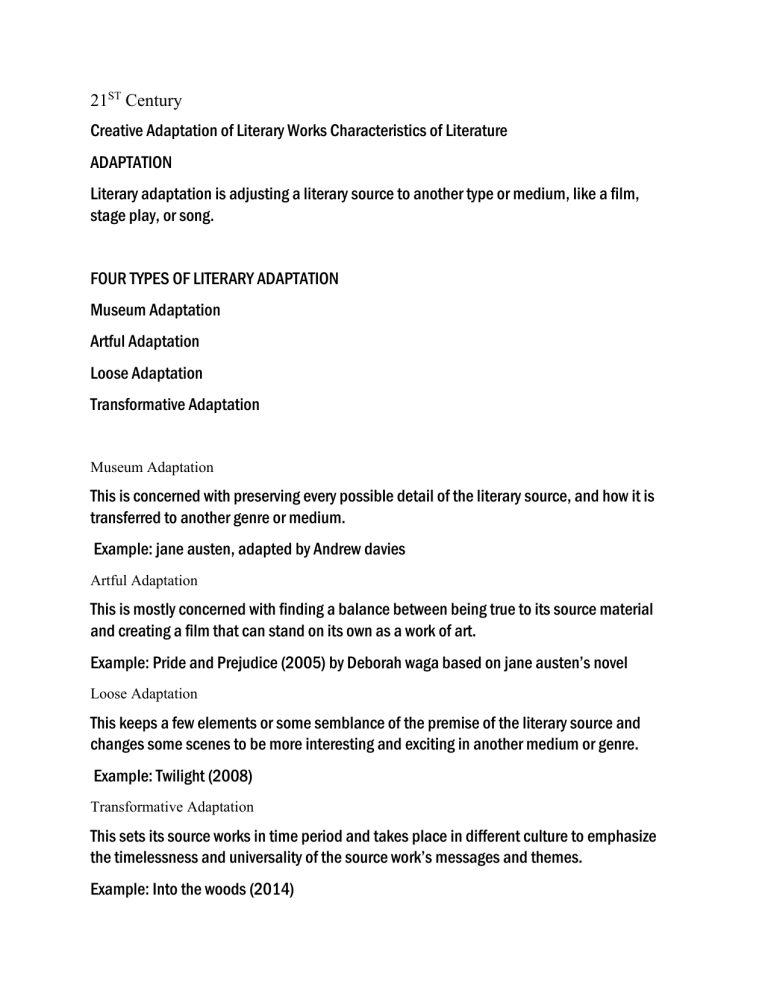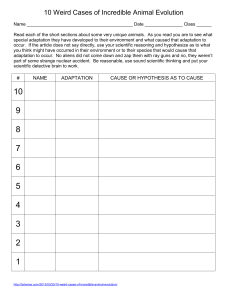
21ST Century Creative Adaptation of Literary Works Characteristics of Literature ADAPTATION Literary adaptation is adjusting a literary source to another type or medium, like a film, stage play, or song. FOUR TYPES OF LITERARY ADAPTATION Museum Adaptation Artful Adaptation Loose Adaptation Transformative Adaptation Museum Adaptation This is concerned with preserving every possible detail of the literary source, and how it is transferred to another genre or medium. Example: jane austen, adapted by Andrew davies Artful Adaptation This is mostly concerned with finding a balance between being true to its source material and creating a film that can stand on its own as a work of art. Example: Pride and Prejudice (2005) by Deborah waga based on jane austen’s novel Loose Adaptation This keeps a few elements or some semblance of the premise of the literary source and changes some scenes to be more interesting and exciting in another medium or genre. Example: Twilight (2008) Transformative Adaptation This sets its source works in time period and takes place in different culture to emphasize the timelessness and universality of the source work’s messages and themes. Example: Into the woods (2014) MULTIMEDIA Is a presentation of material that uses both words and pictures in a combination oftext, voice, pictures or video. Videos It’s an electronic medium for the recording, copying, playback, broadcasting, and display of moving visual media. Example formtas: WMV, AVI, MPEG, FLASH MP3 and MP4 MPEG (.MPG/ .MPEG) Developed by the Moving Pictures Expert Group. The first popular video format on the web. Not supported anymore in HTML. AVI (.AVI) (Audio Video Interleave). Developed by Microsoft commonly used in video cameras and TV hardware. Plays well on WMA (.WMA) (Windows Media Audio). Developed by Microsoft Plays well on Windows computers, but not in web browsers. FLASH (SWF/ SMALL WEB FILE) Flash Video is a container file format used to deliver digital video content over the Internet using Adobe Flash Player version 6 and newer. MP3 (.MP3) MP3 files are actually the sound part of MPEG files. MP3 is the most popular format for music players. Combines good compression (small files) with high quality. Supported by all browsers. MP4 (.MP4) MP4 is a video format, but can also be used for audio. Supported by all browsers.


